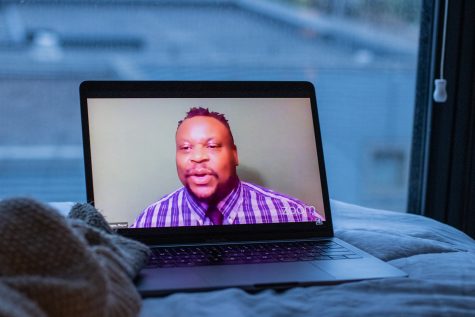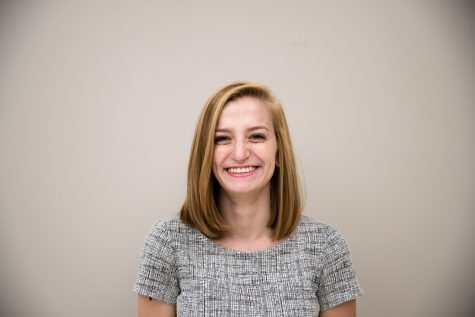Students, faculty prepare for uncertain spring semester
As the spring semester approaches, students and faculty are looking towards next semester with concerns and taking into account what they learned from the fall semester.
The Old Capitol is seen on Thursday, March 12, 2020.
December 15, 2020
Students and professors are preparing for a spring semester with some questions still unanswered.
The UI announced winter break would be extended by a week and there would be no spring break in 2021 in a campus-wide update on Nov. 2. According to the update, classrooms will look similar to the fall semester, with classes with more than 50 students moved online.
After a spike in COVID-19 cases in September, a semester which started as primarily in person ended with more than three-quarters of classes online ahead an all-virtual period post-Thanksgiving break.
Faculty, students, and administrators are taking lessons from an unprecedented fall for a spring semester which UI President Bruce Harreld says will look largely the same in terms of online classes.
In a Dec. 11 interview with The Daily Iowan, Harreld said the UI is looking to new asymptomatic testing options for students. But concrete plans for students returning to campus are still being decided — one option including bringing students back to campus in phases.
“I suggested earlier this week to some people from the [Critical Incident Management Team] in a conversation that maybe we should phase our students coming back so we don’t have a big crush,” he said. “Maybe a quarter over or maybe over a couple of weeks at a time, to relieve some of that pressure.”
Harreld said he didn’t want to put “artificial time pressures” on administrators by setting a timeline for a decision.
UI sophomore Caleb Slater, who is studying political science, took the fall semester off to attend basic training with the Army Reserves. He decided to return to graduate on time. He said he believed COVID-19 wouldn’t be a big deal come spring.
As the pandemic persists, Slater said he’s cautious about returning to campus, especially moving into the residence halls and taking online classes.
RELATED: First-year students use social media, Zoom breakout rooms, student orgs to find community
“I’m definitely worried about housing and dining because their timeline has been pushed closer to the move in date now because of COVID-19,” he said. “I don’t find out where I’m moving or who I’m rooming with until late December or early January. The thought of not knowing if I’m going to be rooming with someone who goes to parties or doesn’t wear a mask is concerning.”
University Housing and Dining sent out an email to students with meal plans on Dec. 9 with an eight question survey about exploring dine-in options next semester. In an email to The Daily Iowan, UHD Communications Coordinator Megan Yoder said any changes for the spring semester will be announced as they are finalized.
“University Housing and Dining is reviewing updated health guidance and will continue to adapt plans as necessary,” she said.
The survey asked students their preferences for dining in the spring and said up to 300 patrons may be seated in a market place at one time where they wouldn’t have to wear a mask while eating.
Slater said he would feel more comfortable with the fall take out option to decrease community spread.
Beyond living arrangements, classes will look similar to the fall – something Associate Professor of Anthropology Andrew Kitchen is preparing for.
RELATED: University of Iowa plans to implement asymptomatic COVID-19 screening
Kitchen said he taught one online class in the fall and will teach one online and one in-person course next semester. In the fall, Kitchen said he had students test positive for COVID-19, and is preparing for a similar situation in the spring. As he moves forward, he said he plans to record his in-person classes for the foreseeable future.
“I’m planning on students coming into class in a specific order and having them sit in specific seats,” he said. “Everyone will be masked. There are just certain things that we won’t do, like no one will be sitting by a pathway. We’ll have certain directions about coming in and leaving the classroom.”
Kitchen said he has changed his teaching style over the semester as he adapted to a lecture-based class online. Six weeks away from the beginning of the spring semester, Kitchen said he’s filed away his fall experiences for the upcoming semester.
“The way we think about accommodations and about reaching all of our students to increase learning, I will be taking that forward whether the virus is here or not.”






















